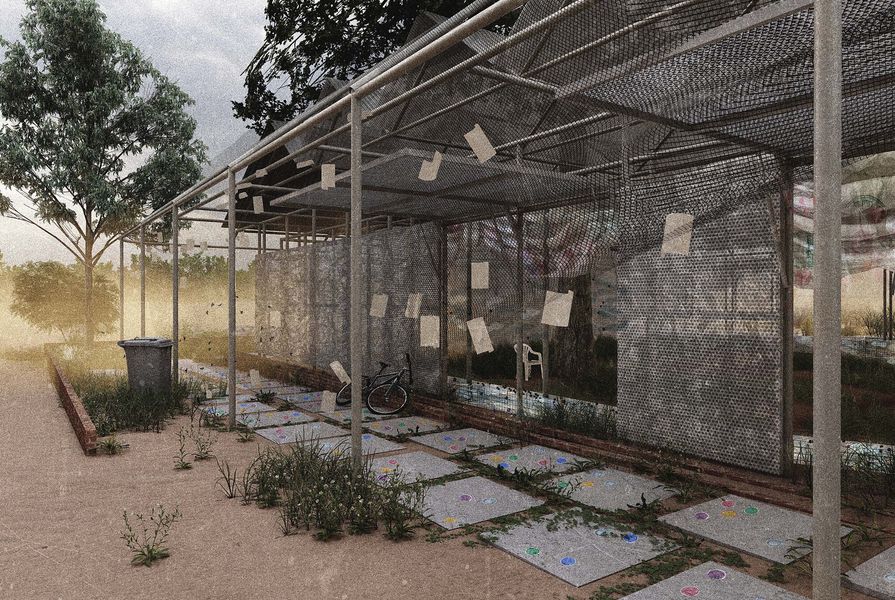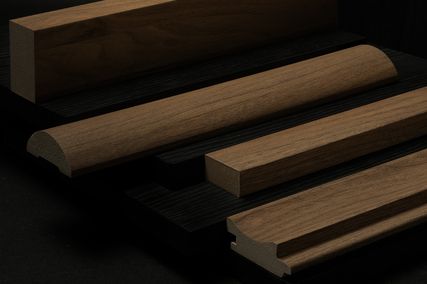Jury citation
The winner of the AA Prize for Unbuilt Work 2023 – Junk Tectonics, Feral Communities: The Metamorphosis of the Mildura Golf Club – generated wide-ranging discussion between jury members as they sought to understand the way in which its subversive nature manifested a refined architectural proposition.
The compelling critique of industrial extraction and recreation as beneficiaries of exclusive access to quarantined landholdings reveals the tension between land as a means of production and land as a means of ownership. This tension is wittily deflated using refuse as a muse. In assembling refuse as architectural elements to provide light and shade, mound and space, the project further reveals the intention to move from the exclusive to the inclusive. The regeneration of the site’s damaged ecology leads to a series of structures that provide a metaphorical and physical framework for full community access and use.
In this way, the project sets up a new tension: that between land as a means of regeneration and land as a means of belonging.
This creative project uses an existing site to tackle urgent and complex issues of environmental and human ethics, experimenting with materials and space to turn an exclusionary, degraded landscape into an inclusive, thriving community. The associated drawings are executed with precision and care, communicating a sensitivity and seriousness toward the pursuit
of architecture as an agent of activism.
Architect’s description
Large-scale networks of capital have driven a global anthropogenic transformation in which extractive values govern regional landscapes.1 This project investigates the hierarchies of a golf course and an adjacent landfill site on the arid lands of Mildura, a regional city beside the Murray River, one of Australia’s most vital water sources. The golf course is exposed as thriving on extraction and exclusion, which it imposes upon communities, ecologies and a diminished river. Through a lens of feminist ecological thought, this project extends the notion of human and non-human entanglement to include the discarded junk that has become part of our geological landscape.2 By conducting a reversal of extractive hierarchies, it seeks to celebrate ecologies, communities and junk.
This project proposes a metamorphosis of the Mildura golf course and its clubhouse, using junk tectonics and compositional devices to create experimental spaces for ecologies and communities. This transformation will take place via a staged intervention of structures for ecological rebirth: an anthropogenic journey, a reframing of sport within aridity, and the introduction of a new clubhouse. The stages will follow the compositional geometries of slicing, subverting and blurring. The imposition of reformative interventions will transform the site from an exclusionary space favouring the few to an experimental one with multiple users, fostering symbiotic rather than extractive relationships.
1. Jillian Wallis, “The Antipodean limits of a manifesto: OMA and the Australian countryside,” Fabrications, vol 28, no 1, 2018, 110–112.
2. Lara Stevens, Peta Tait and Denise Varney, Feminist Ecologies: Changing Environments in the Anthropocene (Melbourne: Palgrave Macmillan, 2018).




















